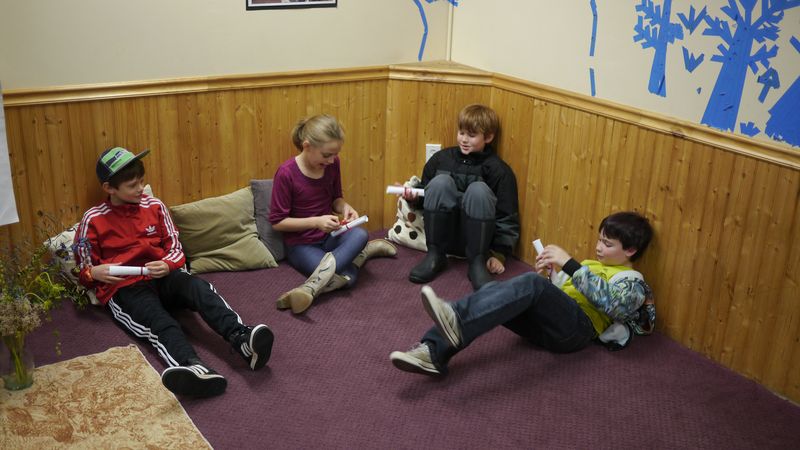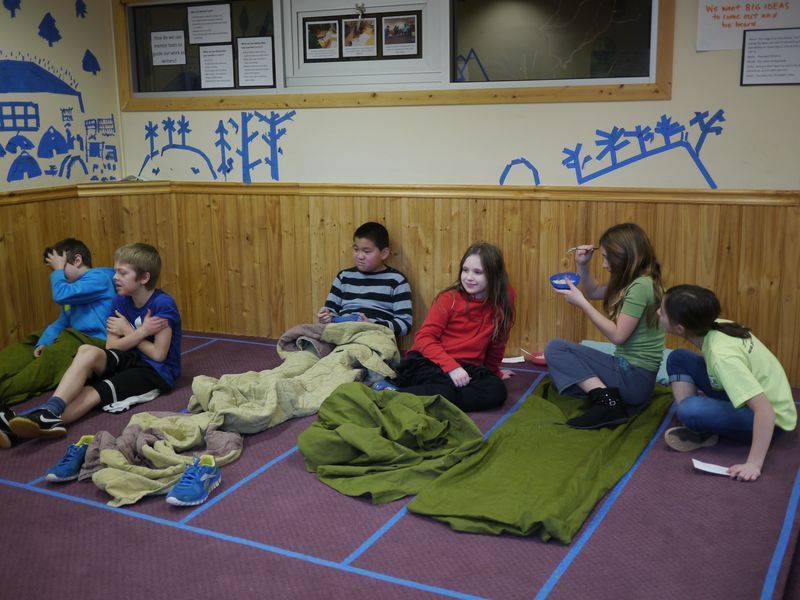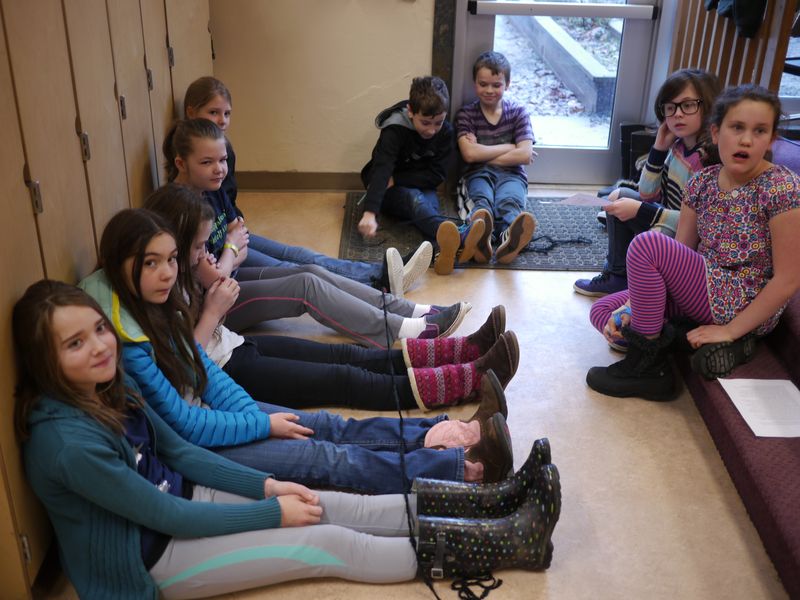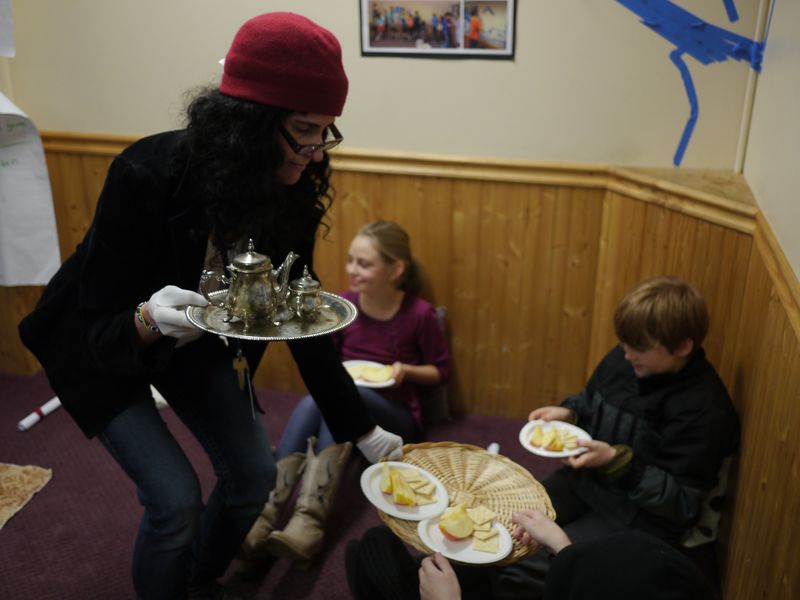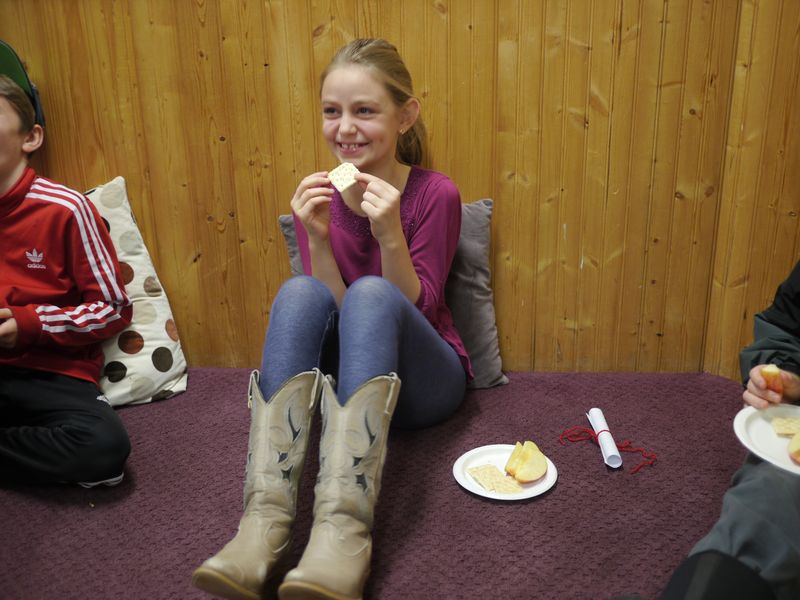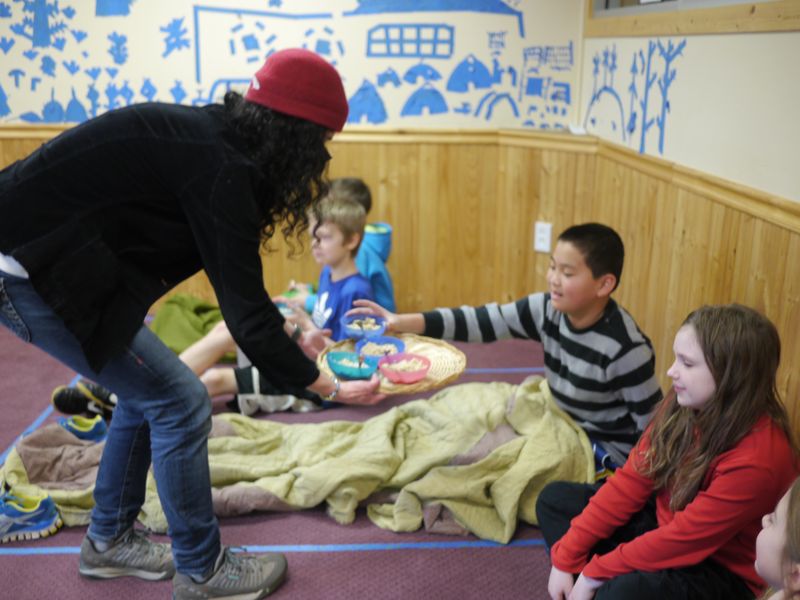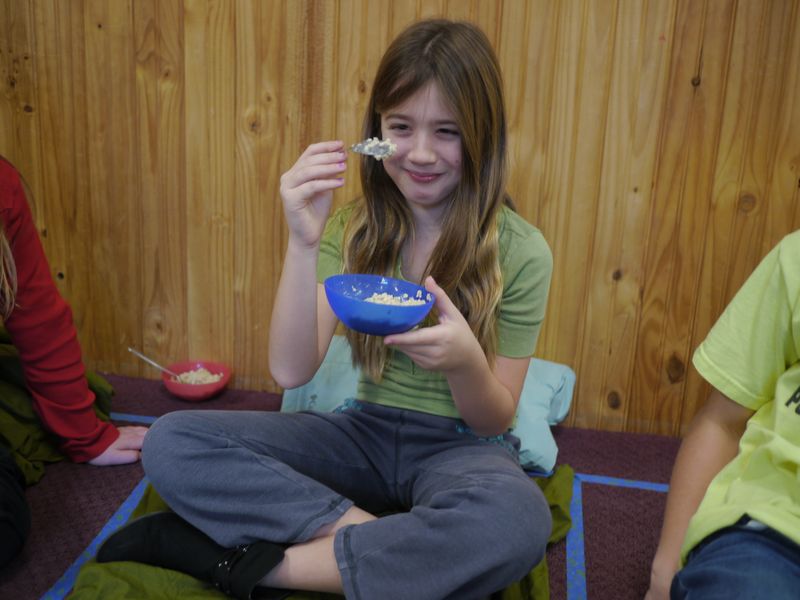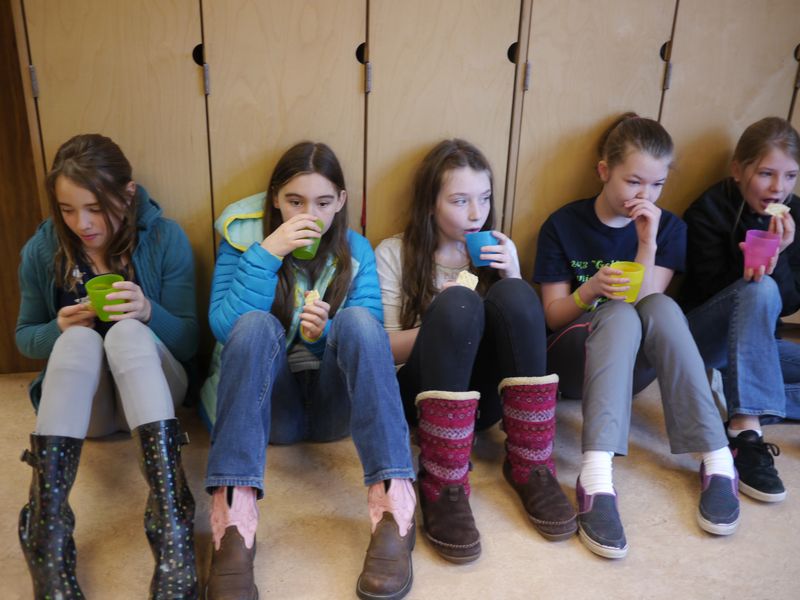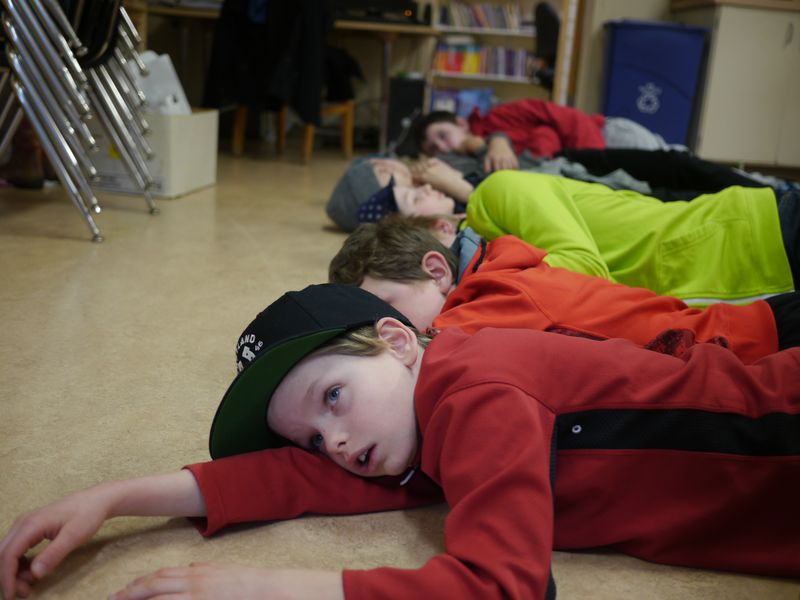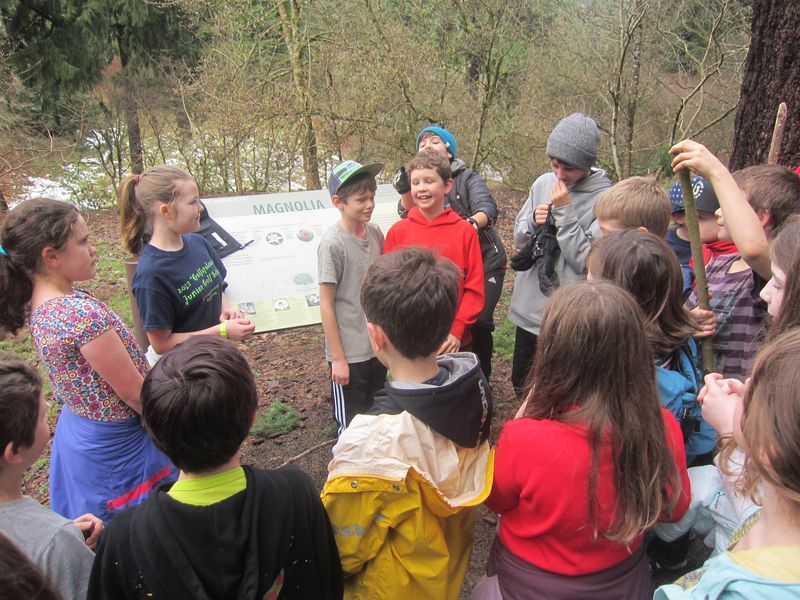Thinking About the Role of Provocation
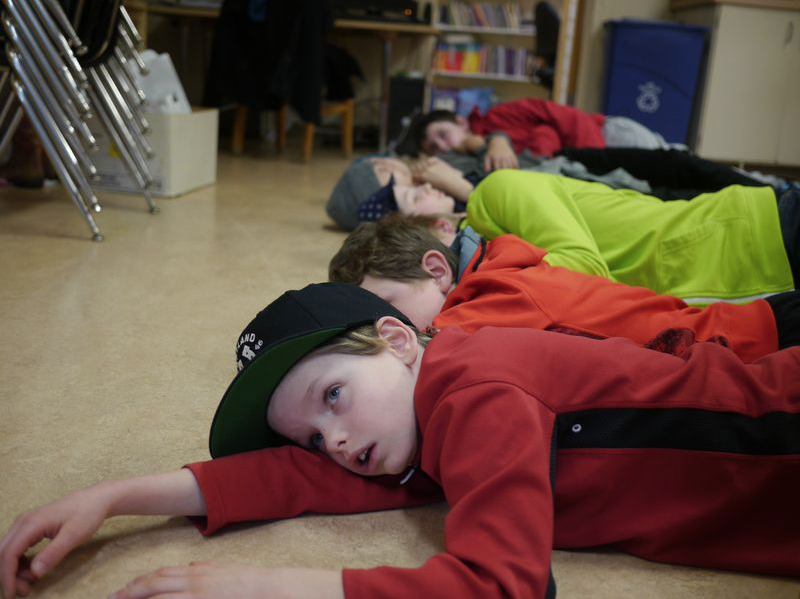
I am writing this blog post from an airplane at 35,000 feet, on my way to New York City for a three day visit with family. What a stark contrast to the traveling we have been reenacting in our classroom this week! On Wednesday morning, the students of Opal 4 were all passengers on a ship in 1750. The ship left the pier in Dover, England with some passengers on board:
gentlemen and one lady traveling first class as guests of the captain,
passengers who could pay for tickets and were assigned bedsteads in berths,
and a handful of indentured servants. It was common for Europeans who could not afford the passage to the British colonies sign an indenture contract, to agree to work as a servant for a specified number of years in for room, board, and sometimes, wages, and, following completion of their indenture, they would be free. Some of the indentured servants on our ship entered into contracts like this while others were kidnapped from the dock and forced onto the ship and into the life of an indentured servant.
As the ship set sail, the passengers dined according to their station.
The first class passengers had fresh fruit,
the ticketed passengers cooked and ate their porridge,
and the indentured servants ate what they could of ships biscuits, avoiding the worms. Along the journey, the ship stopped on the west coast of Africa and picked up a load of what the captain called, “human cargo.”
These African slaves were packed into the hold and then the ship set sail again.
Stepping out of character, I asked the children to take some time to look around the room and see what their ship looked like, who was on it, and what sort of journey they were having.
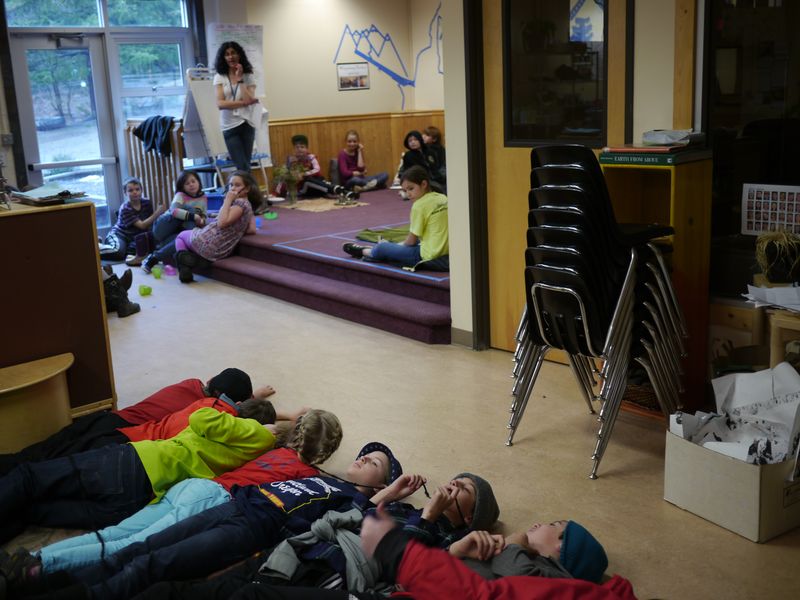
Then we invited them to go write – what journal entry would your character from the ship record?
Torture
I never would have thought of being parted from my family, thrown onto a ship, eat nothing but dirt-filled water, worm-filled crackers, fatal throwing up… but it happened. I got kidnapped from my family. I had no choice. At 15, thrown onto a ship.
-BC as a kidnapped Indentured Servant
Today we were taken by the English and jammed into a small cargo hold with big chains dropped over me. On our land we are free to go where ever we want. We have all the space in the world and now we are cuffed up and thrown into a rotting pool of feces.
-SE, as a captured slave
May 20, 1750 – Journey to the New World
The journey has been very rough. The second class passengers are very in control. Someone almost killed another. The slaves and servants are disgusting. All dirty and sick adn stinky. The bread, dried fruit and tea was very, very good. What does the New World look like? What are the people like? Does the climate change? The captain and first mate are kind and generous. I just love first class sailing. I have never been on a ship before.
-DW, traveling first class
I was in a berth without a blanket. Everybody else had blankets, but not me. Later I cooked some mush and ate about 3/4 of it and then gave the rest to a young indentured servant that was starving. It smelled gross, so bad that I held my shirt over my nose the whole time. Then we had a storm. I barfed and barfed and barfed. I was cold, really cold. I left my mom and dad and two brothers. I left my friends and my dog. I was sad but happy. I could be free!
-OD, traveling second class
The storyline ends here for now, with the children all on the ship, in different groups, as they take their three month journey across the Atlantic together. We teachers are listening to the children to try to decide where their journeys will end.
Teacher Reflection
This experience made me think about the role of provocation in the classroom. What do we do, as teachers, to provoke the children to respond – to think, to wonder, to engage in the work and life of the classroom? Then, how do we position ourselves to listen for a response?
This day was so rich – the provocation of the ship drama took only a short amount of time to play out. After the children wrote their responses, we took them into the Arboretum to an area where we hadn’t been before and invited them to play. They all quickly took on the roles of their new characters – finding people to play with them, setting up households and plotlines to support their play.
I was surprised by how deeply they connected with these new characters right away and how they were so eager to continue playing in these new roles.
I wonder how much of the response I saw this day was a result of the drama we staged for them, the provocation, and how much I can attribute to the children being so comfortable and well versed in the art of dramatic, “historically imaginative” play? Or is the nature of a classroom based on provocation and response one where all of those things must live together and don’t need to be teased apart?
And what from this experience will feel important as our work moves forward?

